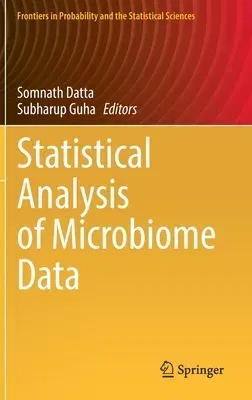Statistical Analysis of Microbiome Data (2021)Hardcover - 2021, 28 October 2021

Qty
1
Turbo
Ships in 2 - 3 days
In Stock
Free Delivery
Cash on Delivery
15 Days
Free Returns
Secure Checkout

Part of Series
Frontiers in Probability and the Statistical Sciences
Print Length
346 pages
Language
English
Publisher
Springer
Date Published
28 Oct 2021
ISBN-10
3030733505
ISBN-13
9783030733506
Description
Product Details
Book Edition:
2021
Book Format:
Hardcover
Country of Origin:
NL
Date Published:
28 October 2021
Dimensions:
23.39 x
15.6 x
2.06 cm
ISBN-10:
3030733505
ISBN-13:
9783030733506
Language:
English
Location:
Cham
Pages:
346
Publisher:
Weight:
684.92 gm